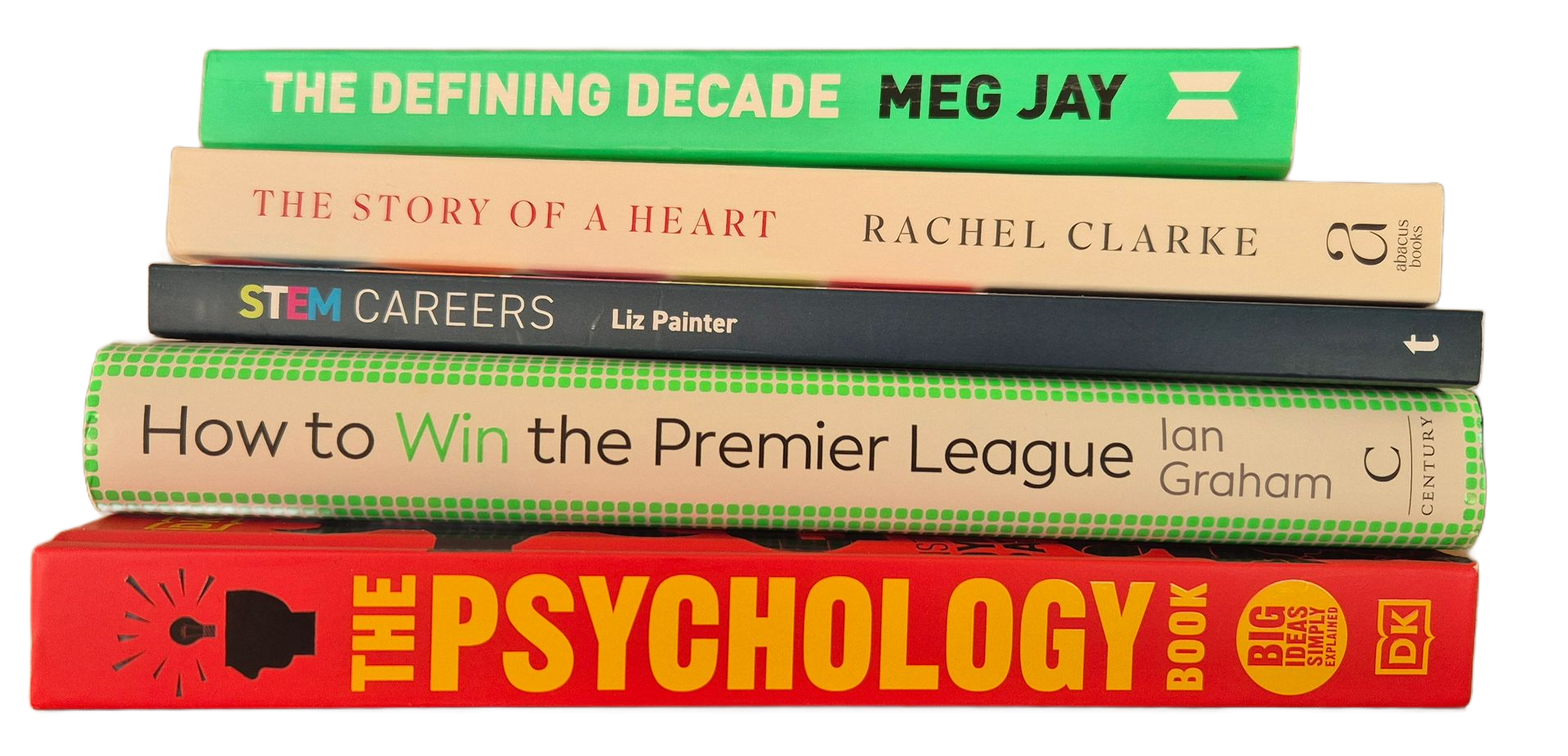Top Tips for Parents of Leaving Cert Students
Petrina Mitchell • 5 January 2021
Guiding young people to make their best decisions for after the Leaving Cert

During the teenage years, it is important to stimulate conversations around careers to facilitate career thinking and encourage exploration of the various career options. However parents are wary of becoming highly authoritative or authoritarian especially in light of the portrayal of helicopter parents, and most recently tiger moms, in the media. So how can we balance our want, to support, and our need, to ensure that they make their best choices?
Here are some guiding tips to help parents support and inspire their teenage children to explore the best college and career options for them.
INSPIRE:
Don’t take the lead for your teenager by deciding what careers to investigate, rather encourage them to explore as many options as possible initially. Inspire them to start identifying people in different careers. These can be tv characters, friends and family members, etc. or they might be intrigued by what some of their older friends or family are studying in college. What’s important at this stage is that you don’t take control and name careers. Rather encourage exploration around what elements of careers are attractive to them.
SHARE:
Discuss your own career story with your children. Do they know exactly what you do and how it fulfils you? Think about:
- As a child, what did you want to be when you grew up?
- Talk about your interests and how these have impacted your career development.
- If you attended college; why did you choose your particular course and how did you enjoy it.
- What jobs have you had over the years and what did you learn from each of them? Identify the positives and negatives, however ensure to frame your discussion around the negatives in terms of what you learned from the experience.
- Talk about what you are passionate about in your job; what energises and engages you in the workplace; etc.
- And how do you make career decisions? Think about job changes, promotions, etc.
Use career related language as you discuss your career story – talk about cv’s, application forms, job descriptions, performance appraisals, compensation packages, promotions, etc. Encourage your teenager to start creating their own cv so that they can start identifying skills, experience and qualifications achieved.
EXPLORE:
Rather than naming careers that you think they may be suited to; it’s better to start by identifying their skills, preferences and interests. Some good questions to start with include:
- What are your skills? What kind of things are you good at? Think about both at school and at home. If your child has worked part time, volunteered or did some work experience; what tasks did s/he do and what did s/he learn?
- What are your interests? What do you enjoy doing in your spare time? What would you do for free?
o Consider music; reading current affairs; building models; watching history programmes; etc.
- What are your unique personal qualities? What makes you different from some of your friends?
o This could be confidence around others; making presentations; helping others with their homework; practical minded; etc.
IDENTIFY:
When we use our strengths at work, it increases our likelihood of success and happiness in our career. It is much easier for parents to recognise their strengths than it is for your son or daughter, so regularly identify and name what they are good at. Talk about how they feel when they are doing something that is a natural strength? Are they energised, engaged and focused? Does time fly by?
Then discuss what type of career fields their strengths may be beneficial in. Brainstorm with them on this, rather than identify the careers directly. For example, ‘doing detailed research and distilling it clearly for others to understand’ is very useful within law, but equally so in the fields of journalism, business, politics, etc. If you define the career(s), it limits the possibilities based on your understanding of how it can be applied. So don’t box them in and encourage them to explore further.
RESEARCH:
In order to inspire them further, encourage and engage with them to use websites to explore career fields further. Be sure to check out the very useful Irish and UK websites which provide detailed information on occupations, future skills needs, earnings potential, etc. Check out www.careersportal.ie
and a UK equivalent, https://nationalcareers.service.gov.uk/
The world of work is changing rapidly and many parents have a limited view outside of their immediate career. Encourage your child to explore all options after their Leaving Certificate. In addition to applying to the universities and colleges through the CAO, talk about other options including further education training with www.fetchcourses.ie, www.apprenticeship.ie, overseas universities and private education organisations.
Taking a focused year out is also another option, where they may travel or get a job where they can build skills and experience which will help them clarify the direction that they want to take their career in.
ENGAGE:
Once the student has started to narrow down the list of potential career possibilities, it’s time to engage and leverage your network of friends, family and colleagues. These will be able to identify people who are working in their interested fields and enable them to meet and interview professionals currently working in these careers.
Once you have made the connection, then help them to email or call the contact to set up a meeting to gather further information on this career. It’s very tempting to schedule and attend the meeting but don’t. This is all part of building confidence for their future, as well as enabling them to develop skills in research and information gathering.
SUPPORT:
Sometimes students require additional help to identify, evaluate and make the best decisions for their futures. There are a range of options out there for them. Encourage them to set up a one to one session with their school guidance counsellor or engage the help of an experienced, private careers consultant who will engage and inspire your child.
Why do parents of Leaving Certificate students decide to get private career guidance in Galway?
All schools have Guidance Counsellors employed on a part time or full time basis. The time allocated to individual one to one consultations with each student is limited and in some cases consists of one, 40-minute session during Leaving Cert year. Guidance Counsellors are in high demand and stretched to support student well-being and mental health, as well as preparing large numbers of students in college / career direction decisions, while in some cases, teaching too.
When we, as parents, make important decisions in life and our careers, we like to seek out second opinions from trusted others. This is especially true when we perhaps feel overwhelmed with a wide range of options in front of us. It takes time to make decisions and sometimes that time is not available within the school guidance setting.
All parents want to ensure that their child can make well-informed decisions on their next steps after school. However despite having perhaps gone through the CAO process many years ago, the world of work and education is changing rapidly and parents sometimes only know careers within their own industry or field.
Some students are crystal clear on their career direction whereas many others need to research and explore options before making any decisions. Without help, some students get anxious and stuck, which affects their motivation to study and focus on the Leaving Certificate. Clients tell us that by helping them get clarity on their next steps, they can then focus on their studies much more effectively.
By making an appointment with a private career professional, parents know that their child will receive dedicated one to one expert support with focused attention on their unique strengths, talents and potential. An online career guidance session may result in the student deciding to stick with their first option however they will have considered and explored alternative options during their guidance session.
I have worked with many students who were tunnel-visioned on one course, and one college only. A private career guidance session can help students explore alternative options so that they have plans B, C and D. This can help relieve pressure which tends to builds closer to the Leaving Certificate exams, especially when the student has limited themselves to one course and one college.
At the end of private career sessions, parents and student receive a dedicated report to support decision making and receive direction on what next steps can be researched and followed through to ensure that their child moves forward with clarity and confidence. A good Careers Advisor will also follow up with clients to ensure that they are confident about their next steps, whether that is CAO applications, apprenticeships, further education, taking a focused, year out or kick starting their work-life.
Subject Choice for Leaving Certificate and Junior Certificate
We offer parents and students guidance on subject choices too primarily at Senior Cycle levels, starting from age 15 onwards. The variety of choices available can be quite confusing and making subject choices is important to ensure that subjects chosen support future college and career ambitions. Understanding ambitions, interests and strengths prior to choosing Leaving Certificate subjects, will maximise opportunities at a later stage. Timetabling issues within schools can also result in reduced choice therefore it’s important to analyse options carefully, choose well and avoid difficulties later on.
Attending Virtual Galway College Open Days
Due to the Covid pandemic, colleges are now offering an alternative to the traditional, on-campus open days to provide Leaving Certificate level students with an understanding of college life through campus tours, course information sessions and an opportunity for Q&A’s with both professors and current students.
There is a variety of information to explore and students say that they felt they were getting lots of information at open days. However at the end of some sessions, they later realised that they didn’t pick up the information that they really needed to make good, informed decisions.
So how can parents help their son or daughter avoid getting distracted by information overload, and bright lights, at a virtual event so that they can get the most out of their time attending?
1. Register in advance to get links, log-in codes and the event schedule. A few days before the event, you will receive information on the technology to be used; a timetable and detail of the live presentations; live chats and virtual booths where you can go and ask Q&A.
2. Identify and research your preferred career fields beforehand so that you know what departments you want to learn more about. Research the specific courses that are of interest and prepare a list of questions which will help you explore the course further and figure out if these courses are good options for you.
3. Make a list of the live presentations you need to attend. You will have a choice of between four to six presentations for each time slot so you will have to be selective. If you need to prioritize and cannot attend a presentation that you feel might also interest you; enlist a parent or friend to attend those sessions. Let them know what information you need answers to and give them a list of questions to ask.
4. Most colleges now have virtual campus tours on their websites. Look at these and then figure out what else you need to know about college life on campus? Do you need to learn more about accommodation, transport, social clubs, sports, etc? If you are potentially eligible for performance or sports scholarships; there will be representatives available to answer questions on these too.
5. Have a friend or family member with you to take notes and bring you food and drink as you may be online for a few hours 😉. Use a Course Exploration Worksheet to take specific course notes as you progress to help keep track of key elements of each course of interest. If a college representative is of particular interest to you; take their name as you will be able to follow up with them after the event is over with additional questions.
6. Debrief after the session with your friends, parents and trusted advisors. Rate and rank each course at the end of the day out of 10. What additional information do you now need to gather to help you make your CAO course decisions later on in the year?
7. Finally, don’t do just one virtual open day. Register and log on to others so you can compare and contrast colleges and courses which will help you ensure that you make the best choices on your road to college.
If you’d like a Course Investigation Worksheet to help you explore the best college courses for you, then leave a message in comments or email me petrina@careernavigationconsultants.com
To view recordings from previous Autumn Open Days and to find out when the next upcoming open days for Galway colleges will take place, check out:
How do I know my teenager is ready for college?
I get asked this question a lot from parents. A few years ago, my 18 year old son packed up and moved away from home to start college in Limerick. I didn’t give it a huge amount of thought at the time. Was he ready?
As far as I was concerned, he had got the points and was accepted into college on a course that was close to the top of his CAO list. TICK
We went shopping so he had his duvet, bed linen, clothes, etc. All the practical bits and bobs required. TICK
He got stuck into freshers week. He partied. He attended lectures (or so I was told). He made new friends. He was coming home with washing. And raiding the fridge on Sunday evening. TICK
However towards the end of the first semester, I realised it wasn’t all plain sailing. The whole college experience wasn’t what he initially anticipated. Although there was plenty of free hours in the day; time flew by, tutorials were missed and assignments were piling up. It was becoming apparent that he wasn’t overly happy in his course.
One in six third-level students don’t complete first year in college in Ireland.
The change and freedom offered to new college students is massive and requires a significant step-up in maturity. A lot of maturing happens between 16-18 years. However all students mature at different paces so just because a student gets offered a place in college; it doesn’t necessarily translate into him / her being ready for college.
How can we, as parents, tell if our teenagers are ready for college?
Here’s seven questions to help determine if your teenager is ready:
1. Who is researching courses and applying to the CAO?
2. Can your teenager cope with challenges, such as setbacks, doubt and disappointment?
3. Can your teenager take personal responsibility for themselves (think self-care, going to bed at a reasonable time, eating well, engaging with professors, etc)?
4. Can your teenager manage their own time? Do they need constant reminders?
5. Has your teen shown that they can manage themselves (without their family stepping in to support or rescue)?
6. Can you teenager assess risk?
7. Why do they want to go to college? Is it really their decision to go?
A careers consultant can help parents and their son or daughter understand if college is the best option for them. There are many other alternative options to be considered post Leaving Certificate. A private career consultation would help students understand their motivation and drivers for attending college or not, and identify alternative options which may suit them better.
What questions to ask Career Guidance Counsellors or Career Guidance Advisors in Galway?
Before signing up to work with a private career consultant in Ireland, I advise parents to check out websites and call the career counsellor that will be engaging directly with your son or daughter.
Here’s some questions to help determine if the career guidance professional is right for you and your child:
- What type of career profiling assessments do you use? Are these online or in person? What professional body accredits these assessments?
- How do you identify strengths?
- What range of career and college opportunities do you typically investigate with students?
- What reports and follow up is provided after the session(s)?
- What programmes and services are offered? What is the length of each session? Are they online? What technology is used and how interactive are the sessions?
- What are your professional credentials and industry experience?
- Do you provide support for CAO and non-CAO courses (e.g. FE’s, apprenticeships, UCAS, European colleges, etc.)?
- What additional services do you offer, apart from career guidance to leaving cert students in Galway?
- Can my son or daughter get feedback on their cv’s, applications and interviews for work experience, part time and graduate jobs?
- Have you any referrals / recommendations that we can review?
If you need more information about me and working with me, check out my profile on Linked In
and also here
About Career Navigation Consultants
Petrina Mitchell at Careers Navigation Consultants, has over 20 years’ of experience working in HR & People Development roles across multiple industries so I know careers, development paths and how to guide people towards success. We work with teenagers from 15 years of age and use a mixture of coaching exercises, questioning and accredited career assessments to reveal students interests, aptitudes and strengths and match these to potential career fields. We provide an in-depth report on the best subjects, course options, and careers while also debriefing parents after the career consultation. Contact us today
for more information.










